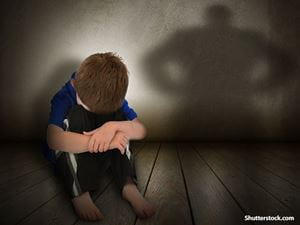
Somedays, it feels like parents are in a wrestling match of wills with children. The Enforcer, commonly referred to as the parent, has a cunning opponent - The Child. The child has mastered gut-wrenching moves that have manifested into a discipline nightmare. Parents struggle as a tag team of screaming and kicking behaviors try to take down all their control.
The good news, however, is that managing behavior doesn't need to include drama or escalating tirades. It is possible to lovingly enforcing discipline at home and skip all of the fireworks.
It's in a child's nature to push boundaries in their environment as they mature. Children are constantly testing limits, looking to see what society views acceptable. This hard wiring makes children incredibly adept at pushing buttons from their arsenal of methods they pick and choose from.
On any given day, kids may be biting, throwing tantrums, hitting, talking back, and slamming doors to lash out at their caregivers. With such a barrage of undesirable behaviors, it can be difficult for parents to stay consistent with discipline.
Discipline is the action of teaching a child about authority and respect. Of course, that is much easier said than done. There will be occasions where parents find themselves losing their tempers and raising their voices or using threats to punish a child into submission. Punishment uses fear as a means of control.
Discipline is not punishment. Punishment demonstrates the strength a parent can exert in a child's life which undermines the family relationship, develops poor self esteem in children, and dissolves the child's self-discipline. According to Carl E. Pickhardt, Ph.D., the purpose of punishment should be to teach a lesson, not to frighten a child. "This is why punishment must be decided rationally, not emotionally. You must give punishment with careful thought, not with impulsive anger."
One way parents can avoid impulsive anger and reduce conflict is to sit down and develop a list of behaviors considered "deal breakers" or issues that are not up for debate. Parents may allow a son to get a piercing or wear black nail polish, but draw the line at getting inked. Children need rules and guidance to know what is expected of them.
Parents need to question if they are fueling the misbehavior by reinforcing it with a radical response. Toddlers who throw a tantrum to avoid cleaning up a mess might be craving personal attention. A biter might take a nibble out of a grubby child on the playground because it stops others from invading their personal space. When a parent is able to identify why a child performs a certain way, parents regain the power in the relationship.
Positive discipline is crucial in building strong relationships between children and parents. Encouraging conversations and avoiding lectures is a good starting point. Allow children some input about the rules and consequences - as long as the parent has the final say.
Once the rules are in place, parents need to be consistent and refuse to give in to a child's pressure. When an offense arises at a playdate or curfew is broken, a parent will be able to handle their response appropriately.
If a tantrum ensues at the grocery store, walk away and leave. Come back later and try again. As hard as it is, let youth experience the consequences of their choices. Later, when the situation has been diffused, sit down at their eye level and talk about appropriate manners in a grocery store. Remind children that their behavior is unacceptable, but they are still loved and appreciated.
Dr. Laura Markham said, "Loving guidance is setting limits and reinforcing expectations as necessary, but in an empathic way that helps the child focus on improving her behavior rather than on being angry at you."
The key to effective, loving discipline is balance. Parents can achieve a good balance by considering the child's needs and their priorities. The next time a child has you pinned down in a confrontation, set a good example by being honest and calm. Avoid name calling or disrespect, because children are watching and learning from a parent's example.


